Escape From Davao (75 page)
Authors: John D. Lukacs
Tags: #History, #General, #Military, #Biological & Chemical Warfare, #United States
Then-Major Wil iam Edwin Dyess just months before his tragic death on December 23, 1943.
Dyess Air force Base
Kyle Richards
Nearly 1,000 American prisoners of war were crammed aboard the
Erie Maru
, a decrepit, coal-burning 7,000-ton merchant vessel, for the voyage from Manila to Mindanao.
The main gate at the Davao Penal Colony, through which nearly 2,000 American prisoners of war entered the camp in the fal of 1942, would be the escapees’ first barrier to freedom.
Australian War Memorial
Carl Nordin
The American POWs in Dapecol were housed according to rank in these long, poorly maintained, barnlike barracks.
MacArthur Memorial Archives

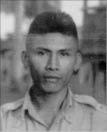
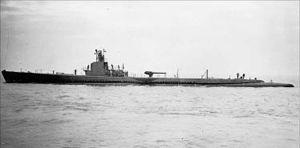
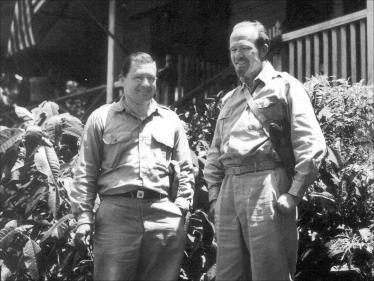
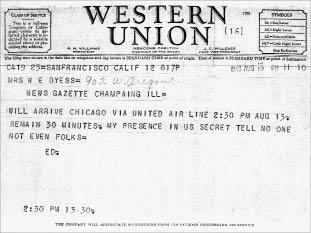
The escapees’ Filipino al ies: (from left to right) Juan Acenas, assistant superintendent of the Davao Penal Colony; Mrs. Candido Abrina; Candido “Pop” Abrina, raconteur and Dapecol agricultural supervisor, 1946.
Claro Laureta, the diminutive, yet dynamic commander of the 107th Infantry Division, as wel as al guerril a forces in the Davao area, provided aid and assistance to the escapees fol owing their breakout from Dapecol.
National Archives
Kyle Richards
Lt. Commander Charles “Chick” Parsons (left), the man described by General Douglas MacArthur as
“the bravest man I know,” and Colonel Wendel Fertig, leader of the Mindanao guerril as.
The USS
Trout
, the submarine that extracted the first group of escaped POWs from Mindanao on July 9, 1943, had a unique history of special missions.
MacArthur Memorial Archives
U.S. Navy Submarine Force Museum
From left to right, Major Ed Dyess, Lt. Cmdr. Melvyn McCoy, General Douglas MacArthur, and Major
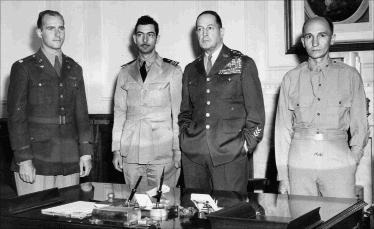
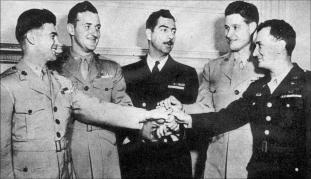
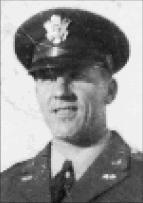
Stephen Mel nik conversing in MacArthur’s office in the A.M.P. Building in Brisbane, Australia, on July 30, 1943.
On August 12, 1943, Ed Dyess sent a cryptic telegram alerting his wife, Marajen, that he would be returning home to the United States.
Texas Tech University
MacArthur Memorial Archives
The Marshal Family
Five members of the escape party are reunited at the Marine Corps Barracks in Quantico, Virginia, in the summer of 1944: (from left to right) Major Michiel Dobervich, Lt. Col. Austin Shofner, Commander Melvyn McCoy, Major Jack Hawkins, and Major Samuel Grashio.
After the war, Robert Spielman returned to his home state of Texas with a lieutenant colonel’s oak leaves on his col ar, and a wife and family, too.
The Spielman Family
Paul Marshal , an erstwhile enlisted man, returned to the United States at war’s end a decorated guerril a commander and Army lieutenant colonel.
The Leatherneck Magazine, Pacific Edition
Mrs. Thelma Kost
U.S. Air Force Historical Research Agency, Maxwel Air force Base Ed Dyess’s deposition would form the foundation of what the War Department would later cal “the greatest story of the war in the Pacific.”

Lt. Leo Boelens, the master mechanic and the only escapee not to return to the United States, was kil ed on Mindanao in early 1944.